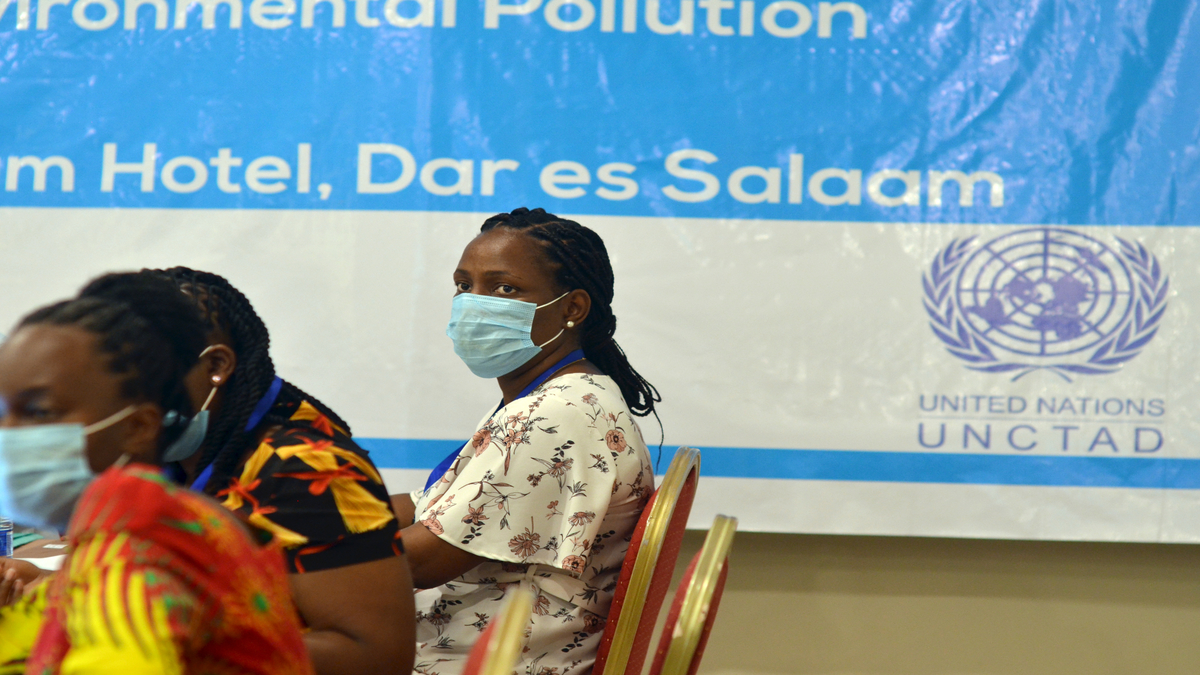
As part of the Sustainable Manufacturing and Environmental Pollution (SMEP) Programme, ongoing studies are examining detailed pollution pathways from trade-exposed manufacturing sectors in sub Saharan Africa and South Asia. In this process, to enhance stakeholder voices on the analysis, the SMEP supplier TeifaIQ has organized national report validation workshops in Kenya, the United Republic of Tanzania, and Ethiopia.
The goal of the reports being validated, with the involvement of the Cleaner Production Center of Tanzania, the Kenya National Cleaner Production Center, and the Ethiopian Society of Chemical Engineers, is to provide a better understanding of pollution pathways in selected industries in the countries, in order to assist the SMEP programme to identify and fund pollution mitigation solutions which have the most impact.
“These validation workshops served as useful platforms in facilitating partnerships between different actors which would assist in the implementation of SMEP follow-ups, besides providing useful inputs for the improvement of the reports” – said Prof. Desta Mebratu, co-organizer of the national events.
The national workshops, organized with COVID-19 precautions, also involve representatives from government ministries, from civil society, and local industry. In the case of Kenya, the beverages and distilleries sector was analyzed; in Tanzania the focus has been on the national textile industry; and in Ethiopia the analysis examined the country’s expressive tanneries sector.
These country workshops brought together a range of relevant actors. It was a great opportunity to meet and provide improvement suggestions to the Ethiopian stakeholders that prepared these comprehensive technical reports. The leather sector is important for Ethiopia, and can be transformed to become less polluting, more circular and competitive, improving the livelihoods of many Ethiopians.” – Said Mr. Robi Redda, who is a technical expert for Sub-Saharan Africa from SMEP’s Programme Management Agent (PMA).
Ethiopia has previously benefited from UNCTAD technical assistance for its leather industry, through UNCTAD’s National Green Export Reviews.
As part of the events, UNCTAD partner Instituto 17 is presenting a beta version of an export-pollution data tool which includes a Lifecycle Analysis of exports from SMEP target countries, including Kenya and Tanzania. “The national reports show that understanding pollution-pathway information is critical to manufacturing development. Thus, the SMEP export-pollution dashboard is a data depository which aims to help in this challenge, giving officials a better understanding of pollution impacts of manufacturing, from supply chains all the way to the exit gates of factories" - said Dr. Alessandro Sanches-Pereira, Director of Instituto 17, who joined the Kenya and Tanzania workshops remotely.
SMEP is funded by the Foreign, Commonwealth and Development Office of the United Kingdom (UK-FCDO) and is implemented in partnership with UNCTAD. The programme aims to invest up to GBP 24.6 million to the delivery or research and related interventions to assist target countries in sub-Saharan Africa and South Asia to tackle the problem of manufacturing and plastics pollution. SMEP will run until at least 2024.


